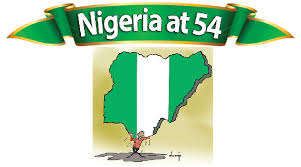Nigeria: A Land of Culture, Economy, and Challenges

Introduction
Nigeria, Africa’s most populous country, is renowned for its diverse cultures, vibrant economy, and complex political landscape. With over 200 million inhabitants, the nation plays a critical role in both regional and continental dynamics. Understanding Nigeria is essential due to its economic potential, significant oil reserves, and influence in shaping the future of Africa.
The Economic Landscape
Nigeria’s economy is one of the largest in Africa, primarily driven by its oil and gas sector. As of 2023, oil production accounts for approximately 90% of Nigeria’s export revenues. The country is a member of the Organization of the Petroleum Exporting Countries (OPEC) and consistently ranks among the top oil producers in Africa. However, besides oil, Nigeria has been striving to diversify its economy by investing in sectors such as agriculture, technology, and services. The agricultural sector is notable for being a key source of employment, with millions engaged in the cultivation of crops like cassava, yams, and cocoa. In 2022, Nigeria took steps to improve its business environment, attracting foreign investment and fostering start-up ecosystems, particularly in tech hubs like Lagos.
Cultural Diversity
The cultural landscape of Nigeria is incredibly rich, with over 250 ethnic groups, each with its unique traditions, languages, and festivals. The three most populous groups include the Hausa-Fulani in the north, the Yoruba in the southwest, and the Igbo in the southeast. This cultural diversity is celebrated through festivals, traditional music, art, and cuisine, making Nigeria a vibrant tapestry of traditions. The country is also home to a burgeoning film industry, Nollywood, which is one of the largest globally and has gained international acclaim for its storytelling and production quality.
Challenges Faced
Despite its many strengths, Nigeria faces significant challenges, including political instability, corruption, and security issues. The ongoing threat of insurgency, particularly from militant groups such as Boko Haram in the northeast, remains a major concern for the government and citizens alike. Furthermore, economic disparities and high unemployment rates complicate the situation. Ongoing reforms and international partnerships are crucial for addressing these issues.
Conclusion
In conclusion, Nigeria stands out as a land of opportunity and complexity. Its remarkable cultural richness and economic potential provide a promising outlook for the future. However, tackling the challenges posed by security and governance will be essential for Nigeria to harness its full potential and foster stability. Readers should keep an eye on Nigeria, as developments here will significantly impact the West African region and beyond.









